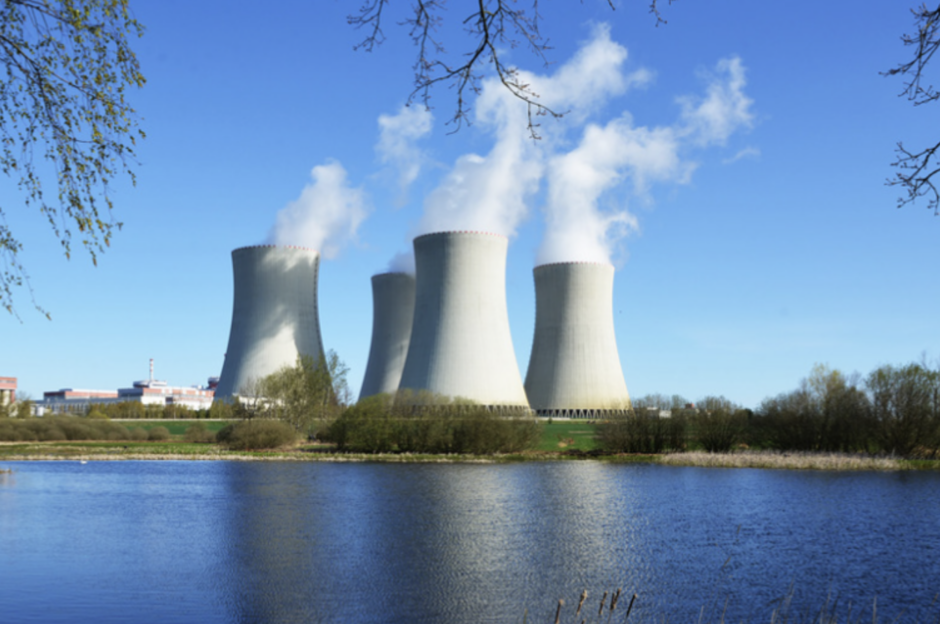
The introduction of the country’s first nuclear power plant into the generation mix has the potential to significantly reduce emissions by several million tonnes – a source of air pollution that negatively impact human health and ecology.
Close to two-thirds of Ghana’s electricity is generated with either natural gas and light crude oil – which its bye-product contributes to extreme weather events such as unpredictable rains, floods, temperature rise and droughts.
The remaining one-third of the electricity are generated from hydro and solar.
Professor Seth Debrah, the Director of Nuclear Power Institute of the Ghana Atomic Energy (NPI-GAEC) disclosed to the Ghana News Agency that unlike fossil power plants, nuclear power plant’s operations emit zero Green House Gases (GHGs).
Complementing fossil power plant operations with nuclear power plants, he said will promote good health, boost the economy by providing cheaper and stable power as well as contribute to the global efforts in reducing the climate burden.
For instance, a Volta River Authority’s emission inventory analysis of thermal power plants between 2012 and 2019 showed that a total emission 10,146,944.57 tonnes was generated.
The country, he said as part of its energy transition plan was in the process of establishing a first nuclear power plant of about a 1,000megawatts capacity by 2030.
Already, Nuclear Power Ghana (NPG) had identified a preferred site for the first nuclear power plant and a backup site to host Ghana’s first nuclear power plant.
He noted that engagement with vendor countries to be as strategic partners had advanced, awaiting a final political decision and announcement early this year (2024) on the country or countries likely to partners Ghana on construction of the first nuclear power plant.
Prof. Debrah stated that the nuclear power project reaffirms Ghana’s commitment towards taking decisive actions under the Paris Climate Agreement and the subsequent Nationally Determined Contributions (NDCs) all geared towards reducing emissions.
“Around the world, countries like France have already met it obligations under the Paris Agreement because they utilize nuclear power plants as part of their electricity generation mix. Thus, their carbon footprint is very low. Transitioning to nuclear energy, we will be able to achieve our climate goals and also contribute to global climate effort,” he said.
Asked about the biodiversity loss of extracting uranium fuel for nuclear power plants operation, the Professor said that just like any technology, Uranium extraction would have impacts but compared to other fuel sources, the impact was marginal and has less health impacts the population.
Prof. Debrah, while acknowledging Uranium mining contribution to environmental degradation said remedial measures could be taken to restore degraded areas but that of emission could be a daunting task.
Mr Desmond Appiah, the Country Lead of Clean Air Fund said the continues use of fossil fuel to generate power releases pollutants that was linked to high mortality rates, heart attacks, respiratory disorders, stroke, and asthma.
He noted energy generation emission was one of the sources of air pollution was the second biggest threat to health in Ghana and causes 28,000 deaths a year.
Mr Appiah said the move would contribute to reducing emission and save about 20 per cent of the government’s total health budget 2022 ($1.1 bn).
Fossil fuels – coal, oil and gas – are by far the largest contributor to global climate change, accounting for over 75 per cent of global greenhouse gas emissions and nearly 90 per cent of all carbon dioxide emissions.
Recently, representatives from nearly 200 countries agreed at the COP28 climate summit to begin reducing global consumption of fossil fuels to avert the worst of climate change, signaling the eventual end of the oil age.
This story was a collaboration between Ghana News Agency and New Narratives. Funding was provided by the Clean Air Fund. The funder had no say in the story’s content.
